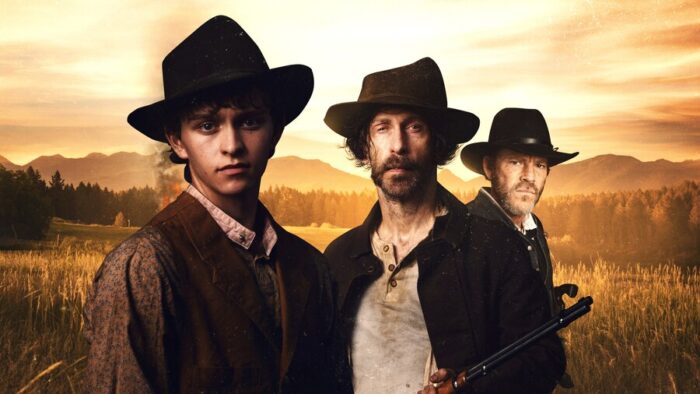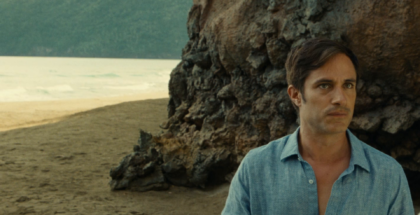VOD film review: Old Henry
Review Overview
Tim Blake Nelson
8Stephen Dorff
8Shootouts, dialogue, hats
8Matthew Turner | On 20, Feb 2022
Director: Potsy Ponciroli
Cast: Tim Blake Nelson, Gavin Lewis, Scott Haze, Stephen Dorff, Trace Adkins, Richard Speight Jr
Certificate: 15
Written and directed by Potsy Ponciroli (best known for the Billy Ray Cyrus sitcom Still the King), this engaging Western stars Tim Blake Nelson as widowed farmer Henry McCarty, who lives on a remote Oklahoma ranch with his teenage son, Wyatt (Gavin Lewis), in 1906. Henry and his son lead a decidedly boring life, to the point where Wyatt is itching to leave home and start out on his own, but trouble arrives in the form of Curry (Scott Haze), a wounded man with a satchel full of cash, whom Henry finds on the outskirts of their property.
Henry takes in the injured man and nurses him back to health, while hiding both his weapons and the money. However, their troubles are far from over, because villainous Ketchum (Steven Dorff) shows up at the ranch, wearing a Sheriff’s badge and looking for Curry.
Tim Blake Nelson has spent a career playing variations on the same slow-drawling, backwoods yokel types. Sometimes they’re played for laughs (as in the Coen brothers movies) and sometimes they’re unsettlingly sinister in their folksiness (most recently in Nightmare Alley), but he’s always a joy to watch. It feels like all those backwoods drawlers have been building up to this, because it’s a honey of a performance, at once comfortingly familiar and full of surprises.
There are hints early on that Henry is no ordinary farmer, not least because he takes one look at the bag of money and says, “Nope.” He also seems decidedly unruffled, even when faced with Ketchum and his posse of gun-toting goons. Ponciroli’s accomplished script drip-feeds clues as to the exact nature of Henry’s past – there are lots of lovely little details – as the story builds to the inevitable shootout, chewing on meaty themes of identity and redemption in the process.
On a similar note, the dialogue is downright delicious, with both Nelson and Dorff getting their fair share of fabulous lines. Dorff, for his part, is clearly enjoying himself and it’s a treat to see him in a part this colourful again. There’s also strong support from Haze, who has a good line in ambiguity, ensuring that neither Henry nor the audience are ever quite sure they can trust him.
Ponciroli’s direction is extremely impressive, suggesting he’s intimately familiar with the Western genre. In particular, he proves adept at slow-burning tension, carefully moving all the pieces into place for the final confrontation. As a result, the climax is genuinely thrilling and beautifully staged, so you can clearly tell where everybody is at any given time. On top of that, Ponciroli finds an ingenious way to add some extra violence to the already exciting finale, eliciting gasps of surprise in the process.
The film looks stunning throughout, courtesy of John Matysiak’s gorgeous cinematography, which makes full use of both the natural landscape and the widescreen format, emphasising the remoteness and the isolation of the setting. There’s also a rich, evocative string score from Jordan Lehning, which provides pleasingly appropriate echoes of The Assassination of Jesse James by the Coward Robert Ford.

















